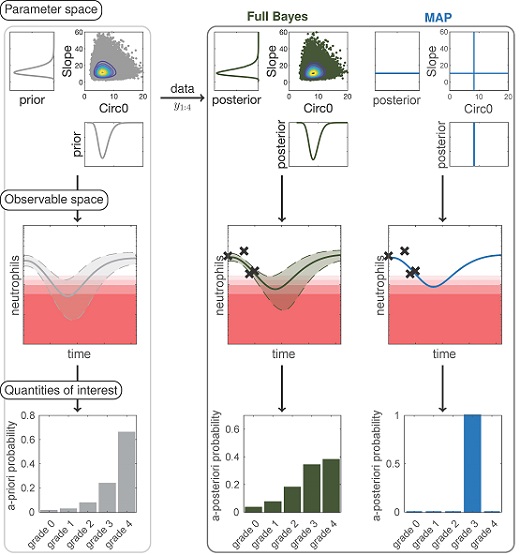Author: France Mentré, MD, PhD on February 24, 2021 
The editorial team of CPT: Pharmacometrics & Systems Pharmacology (PSP) is very pleased to present the 2021 PSP Award to Wilhelm Huisinga, Professor of Mathematical Modelling & Systems Biology at the University of Potsdam/Germany for his article on "Bayesian data assimilation to support informed decision‐making in individualized chemotherapy" published in the March 2020 issue of the journal. This work was done jointly with Corinna Maier, Niklas Hartung, Jana de Wiljes (all from the University of Potsdam) and Charlotte Kloft (Freie Universität Berlin).
Modelling and accounting for inter-individual variability seems to be/is a long standing interest of Wilhelm's research. In the first issue of our journal, launched in 2012, Wilhelm published a paper on "Modeling inter-individual variability in physiologically-based pharmacokinetics and its link to mechanistic covariate modeling", jointly with his PhD students Alexander Solms, Ludivine Fronton, and Sabine Pilari.
In this latest article, the authors present a new methodology for supporting dose-selection in a therapeutic drug/biomarker monitoring setting. Their fully Bayesian data assimilation approach overcomes the limitations of current state-of-the-art approaches based on point estimates (MAP) and allows for a comprehensive uncertainty quantification. In application to cytotoxic chemotherapy, this allowed them to quantify the risks of life threatening neutropenia (the most common side effect) or being inefficacious.
Bayesian data assimilation is successfully applied in meteorology (daily weather forecast), hydrology, and oil reservoir exploration. As Wilhelm told me, he and his co-authors struggled a lot to find a good notation (between the different research fields) and how to present the results to the pharmacometrics community.
The awarded paper represents the start of a new research focus in MIPD (Model-Informed Precision Dosing) in Wilhelm's group. A continuation on the integration of Bayesian data assimilation and reinforcement learning for model-informed precision dosing was just accepted in PSP and published in January in Accepted Article format. The extension to continued learning across patients in a real-world setting is currently in preparation/envisioned as the next step.

The comment feature is locked by administrator.